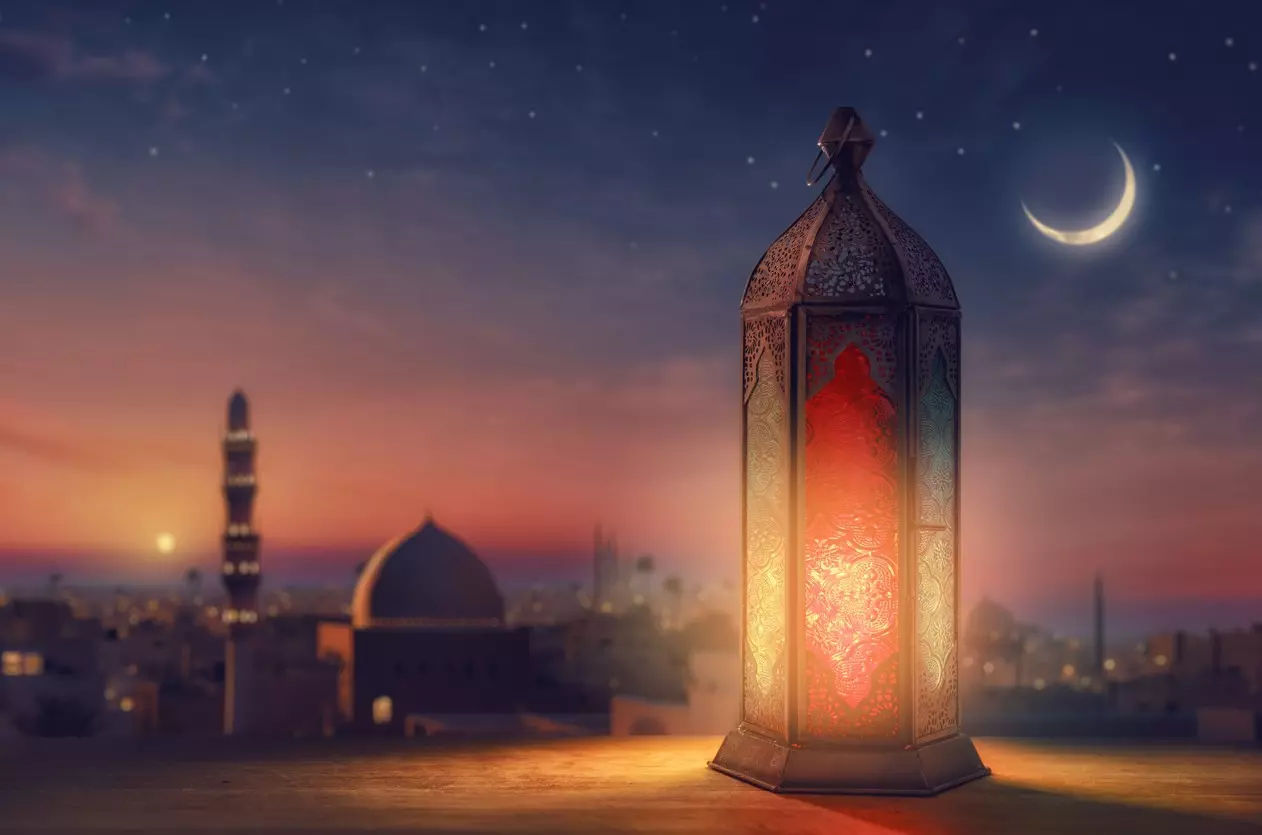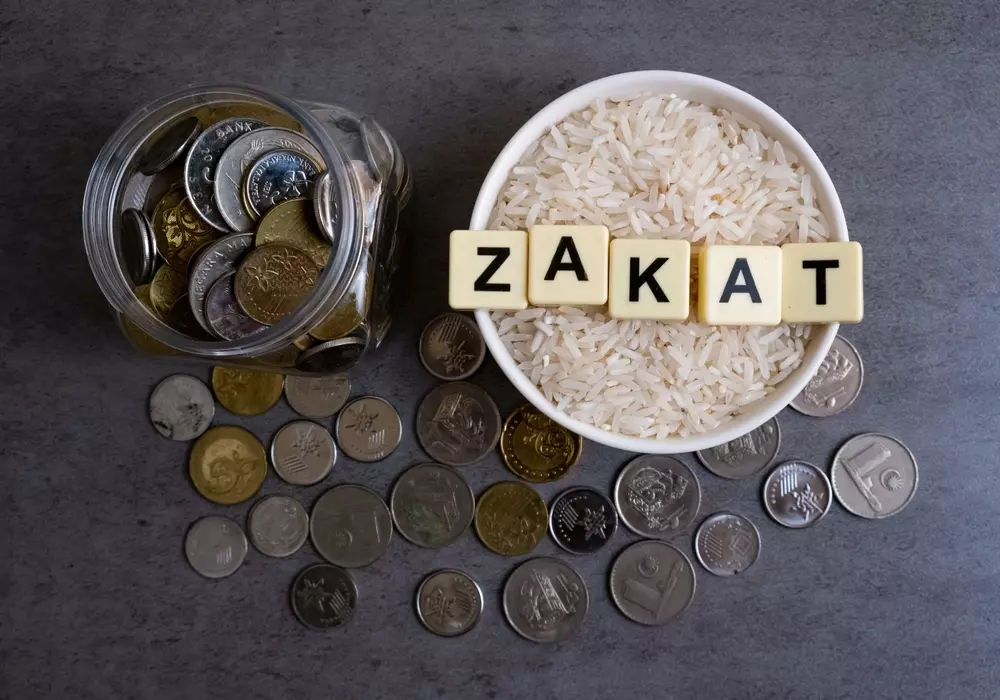Muharram is a very special time of year for those of the Muslim faith. It is the first month of the Islamic calendar, and like new years and first months in many calendars, faiths and cultures around the world, it is a time for renewal, reflection and setting goals. The month of Muharram also contains one of the most significant festivals in Islam, the day of Ashura.
What is Muharram?
Muharram (or al-Muharram) is the first of the 12 lunar months of the Islamic calendar. It is one of the four sacred months as decreed by Allah (SWT) in the Quran. This means that war and other acts of violence are strictly forbidden. This is emphasised by the name – the word ‘Muharram’ derives from the Arabic word for ‘forbidden’. In the modern Islamic calendar Muharram is followed by the month of Safar, but in the ancient Arabic calendar the month of Safar lasted two lunar cycles, the first of which was sacred and forbade war while the second did not.
Therefore, the first period was known as the ‘Muharram Safar’ (‘Forbidden Safar’ or, less literally ‘, Sacred Safar’) and over time the significance of this period and its associations with key events in the Quran and Islamic history meant that the description became the name for the first lunar month of the year.
Muharram is referred to in Hadiths as ‘the month of Allah (SWT)’ – it is the only month honoured with this description:
“A man came to the Prophet (PBUH) and said: ‘Which fasting is better after the month of Ramadan?’ He said: ‘The month of Allah which is called Muharram.’” – Hadith, Ibn Majah
As a sacred month and the start of a new year, Muharram is a time for increased reflection and worship for Muslims. They evaluate their lives, consider their achievements and aspirations and how to continue to build their faith and their relationship with Allah (SWT) over the coming year. Because of Muharram’s special status, the spiritual impact of all deeds are amplified – good and virtuous acts earn greater rewards, and sins and omissions carry a greater penalty. Therefore, many Muslims make sure to carry out more prayers, recitation of the Quran.
The Importance of the 10th of Muharram in Islam
The tenth day of Muharram is the Day of Ashura. This is marked by a festival that commemorates important events in Islamic history, which are held to have occurred on this day.
Of all these events, two are considered the most important and define Ashura. Each of the main denominations of Islam focuses their Ashura celebrations on a different historical event.
In Sunni Islam (the majority of Muslims worldwide), Ashura on the 10th day of Muharram is a day of celebration. It is the day when the Prophet Musa (AS) led the Israelites to freedom from their slavery in Egypt. Pursued by the Pharoah of Egypt and his army, they came to the shores of the Red Sea. Although Musa’s supporters thought the situation was hopeless, Musa (AS) declared his faith in Allah (SWT) and struck the ground with his staff. The waters of the Sea parted, creating a path for Musa and the Israelites to escape. When Pharoah and his soldiers followed them, the waters closed back in and they were drowned.
On Ashura, this story represents the importance of Muharram. It embodies the power of faith and trust in Allah (SWT) and is a source of inspiration and reflection on those who endure persecution and suffering for their faith.
A similar theme runs through how Shia Muslims mark the 10th day of Muharram, although for Shias it is a more serious and sombre day commemorating the Battle of Karbala in 61AH/680CE. This was when Imam Hussain (AS) – the grandson of the Prophet Muhammad (PBUH) – and his supporters fought against the army of Yazid ibn Muawiyah. Hussain (AS) believed Yazid to be a tyrant and that his inheriting of the Caliphate from his father to be against Islamic principles. He, his family and his supporters – a band of 72 people – fought to the death against Yazid’s vastly larger army in the name of their principles.
This event is remembered, and Hussain (AS) is mourned, by Muslims around the world but Shias particularly dedicate Ashura to sombre mourning rituals.
Both of these stories, and other events that occurred on the 10th day of Muharram (such as the migration of Muhammad, PBUH, and his followers from Mecca to Medina to escape persecution) promote understanding and awareness of the ummah (the solidarity and community between all Muslims.
When is the 10th of Muharram 2026?
This year, 2026, the 10th day of Muharram is expected to fall on June 24th or June 25th of the Gregorian calendar. Because the Islamic calendar is a lunar one, the exact timing varies depending on your location – the 10th day of Muharram will not start until the moon of Muharram is sighted in your country or the nearest Muslim country to you. A local mosque will be able to keep you updated about when the Day of Ashura falls for you.
Fasting in Muharram
Fasting during Muharram or on the Day of Ashura (the 10th of Murharram) is not required (in the way that it is during Ramadan, for instance) but it is encouraged on or near Ashura. Fasting is seen by Muslims as a virtuous act, and during this sacred month all virtuous acts receive greater rewards. The Prophet Muhammad (PBUH) said that fasting on the day of Ashura would atone for the sins of the previous year. Given the themes and meaning of Ashura and the place of Muharram at the start of the year, fasting can be a powerful act showing humility, gratitude and solidarity with those who struggled and suffered for their beliefs and faith.
Sunni Muslims will often fast on the day before Ashura (the 9th of Muharram), recommended by many scholars based on a Hadith, where the Prophet Muhammad (PBUH) suggested fasting on the day before Ashura as well, to distinguish Muslims from Jews (who celebrate the crossing of the Red Sea as part of their Passover festival). Because fasting is a celebratory or positive act, Shia Muslims do not fast on or before Ashura in order to observe proper mourning in memory of Hussain (AS). However, to commemorate his sacrifices and hardships, many will forego all but the smallest amount of food and drink – a token meal prevents it from being a true fast.
Fulfil the Importance Muharram With Charity
Muharram is one of the best times for generosity in the Islamic calendar. As it is a new year, it is an ideal time to make resolutions and begin good, positive habits like giving Sadaqah. Doing this can give you multiplied blessings throughout the new lunar year and connect you closer to Allah (SWT).
With Charity Meals, your donates fund precious and meaningful gifts and support to some of the most needy people in the world. Just £1 will provide a hot meal for one person, and one of our £30 food parcels will give food for an entire family for a month. And for £150 you can donate a hand-pumped water well, providing clean and safe water for years to come – a valuable and virtuous form of on-going charity. Embrace the spirit and meaning of Muharram with Charity Meals at this special time.



